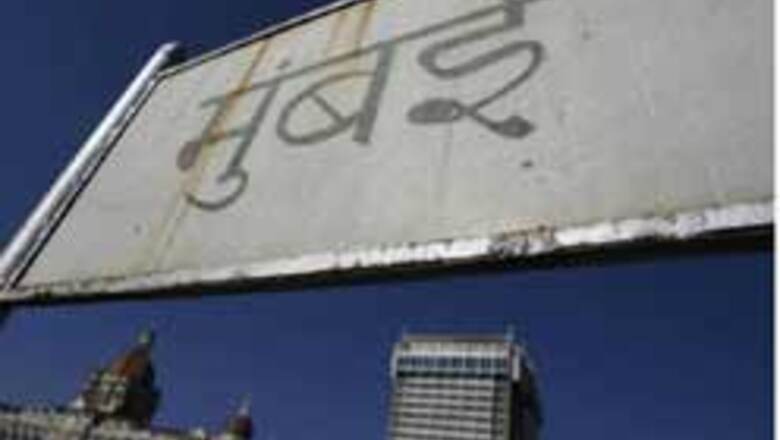
views
New Delhi: India demanded Pakistan hand over 20 of its most wanted men in a sign of faith, as diplomatic efforts to prevent the nuclear-armed rivals from heading toward a confrontation over the Mumbai attacks intensified on Tuesday.
The demand was contained in a protest note handed to Pakistan's ambassador in New Delhi on Monday, Foreign Minister Pranab Mukherjee told reporters.
"We have in our demarche asked the arrest and hand over of those persons who are settled in Pakistan and who are fugitive of Indian law," he said, adding about 20 people were on the list.
The Times of India and television channels reported the men included Dawood Ibrahim, a Mumbai underworld don, and Maulana Masood Azhar, a Pakistani Muslim cleric freed from jail in India in exchange for passengers on a hijakced plane.
The foreign ministry said on Monday: "It was conveyed to the Pakistan high commissioner that Pakistan's actions needed to match the sentiments expressed by its leadership that it wishes to have a qualitatively new relationship with India".
The demand for the hand over of these fugitives was originally made in 2002, but Pakistan has not responded. Arab League Secretary-General Amr Moussa was in New Delhi on a scheduled visit on Tuesday while U Secretary of State Condoleezza Rice was due to arrive on Wednesday following last week's attacks in India's financial that killed 183 people capital.
India has blamed Islamist militants based in Pakistan. Ibrahim, India's most wanted man, is reported to be living in Pakistan. He is wanted for bomb attacks in Mumbai in 1993 that killed at least 250 people but reports have said his henchmen in the city could have also provided some support in the latest strike.
Britain's top military officer warned the tensions between the nuclear-armed adversaries could set back Pakistan's offensive against Taliban and al Qaeda militants along the Afghan border.
Indian investigators have said the Mumbai attackers had months of commando training in Pakistan by the Lashkar-e-Taiba group, blamed for a 2001 attack on India's parliament. Ibrahim is said to be one of its financers.
The attack on India's parliament nearly set off the fourth war between the two countries since Pakistan was carved from India in 1947.
The Mumbai attacks have also rocked India's ruling Congress party coalition. The interior minister has resigned and other top politicians from the party have offered to step down.
Facing an election by May, analysts say Prime Minister Manmohan Singh must walk a delicate line not to upset regional stability but act forcefully enough to counter opposition accusations Congress is weak on security.
Many Indians have expressed anger at apparent intelligence lapses and a slow reaction by security forces to the attacks against Mumbai's two best-known luxury hotels and other landmarks in the city of 18 million.
Rice was due to visit India on Wednesday, underscoring the gravity with which Washington saw the regional implications. She met British Foreign Secretary David Miliband in London on Monday.
"I don't want to jump to any conclusions myself on this, but I do think that this is a time for complete, absolute, total transparency and cooperation and that is what we expect (from Pakistan)," Rice told reporters.
Officials in Islamabad have warned any deterioration of ties would force it to divert troops to the Indian border and away from a U.S.-led anti-militant campaign on the Afghan frontier. Britain's chief of defence staff said in a speech that would have deep consequences.
"If tensions between India and Pakistan continue to escalate, there's a risk they and we could be diverted from the real issue: Dealing with the terrorist groups who perpetrate such criminal and barbaric acts," Air Chief Marshal Jock Stirrup said.
"The nationality of the terrorists does not strike me as the key issue," he said, but rather cooperation among countries "to eliminate such terrorism as a force in international affairs".
European Union foreign policy chief Javier Solana called both countries' foreign ministers on Monday and urged Pakistan to make good on its promise to cooperate in the investigation.
Pakistan has vowed to work with India in investigating the militant assault, but on Monday rejected what it called unsubstantiated allegations of complicity in the

















Comments
0 comment